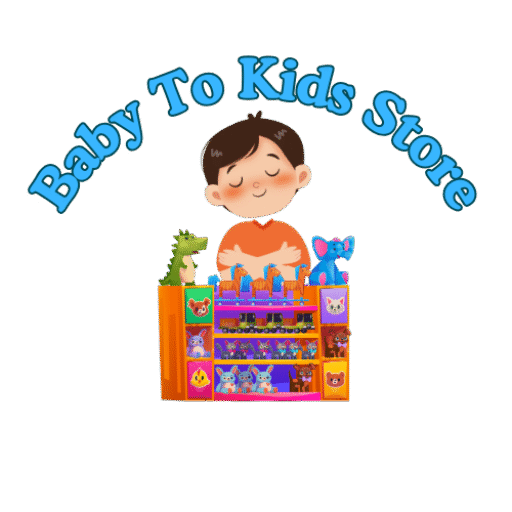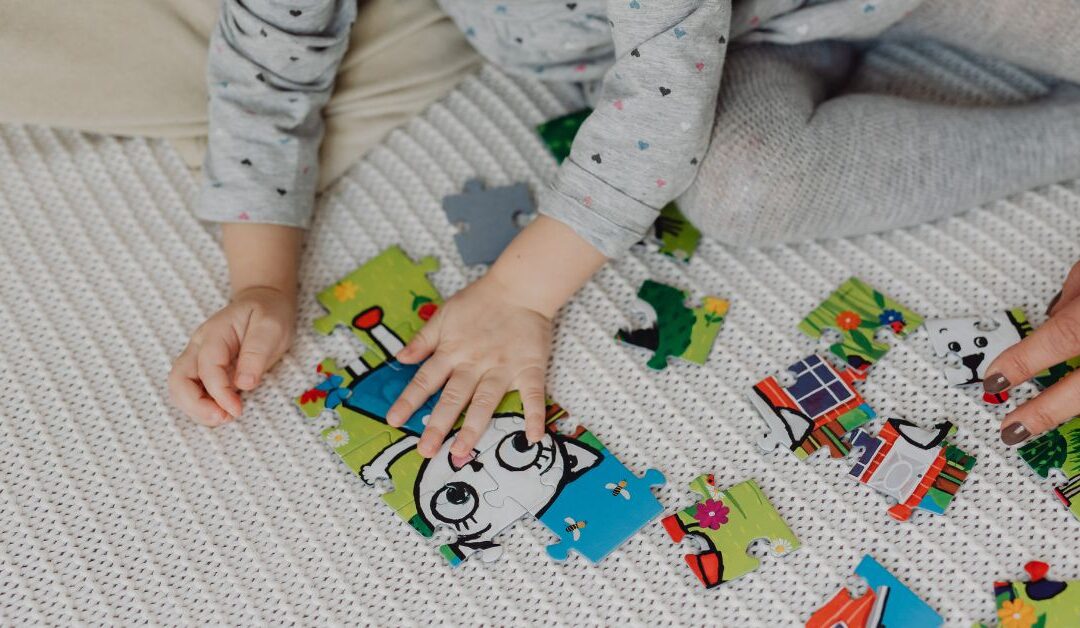What if the secret to smarter, more focused kids was as simple as playtime?
It turns out it is. Research shows that puzzles and games do more than entertain—they train the brain. Through hands-on problem-solving and pattern recognition, these classic activities teach children how to think, focus, and persist.
In this mini guide, we’ll explore how puzzles and games improve cognitive development, which types are best for each age group, and simple ways to make learning fun at home.
(Infographic included below: “How Puzzles Grow the Brain”)
Mini Guide: How Puzzles and Games Help Kids Learn
1. Strengthen Problem-Solving & Critical Thinking
Every puzzle presents a challenge—and every solved piece boosts a child’s ability to think critically.
- Jigsaw puzzles build spatial awareness and sequencing.
- Logic and matching games train pattern recognition.
- Board games teach decision-making and planning.
Science Snapshot:
Studies from the Cognitive Development Journal reveal that children who regularly engage in puzzle-solving score higher in spatial reasoning and memory recall—key skills for future success in math and science.
Introduce your child to simple pattern-matching games early, then graduate to multi-step puzzles or Building & Construction Toys as their focus grows.
2. Encourage Focus and Patience
Puzzles reward persistence. Every small victory teaches children to stay calm, try again, and keep problem-solving until completion.
- Builds attention span and reduces screen dependence.
- Encourages independent play while fostering determination.
- Enhances fine motor control through careful hand-eye coordination.
Parent Tip:
Start with smaller puzzles or easy stacking sets, then increase complexity as your child’s confidence grows.
Explore fun starter toys in the Educational Toys section of Baby to Kids Store.
3. Develop Memory and Concentration
Repetition is memory’s best friend. Puzzles and games require kids to remember shapes, colors, or sequences, improving short-term recall and pattern association.
- Memory games improve retention and recall speed.
- Matching puzzles strengthen visual memory.
- Board games teach strategy and forward-thinking.
Pro Tip:
Make it a family challenge! Solving puzzles together strengthens teamwork and keeps the learning social and fun.
4. Support Emotional Growth and Confidence
Finishing a puzzle is deeply satisfying—it builds self-esteem. When children accomplish a visual task, their brains release dopamine, the “feel-good” chemical associated with motivation and confidence.
That’s why puzzle-solving not only improves mental development but also fosters emotional resilience—kids learn to see challenges as opportunities rather than obstacles.
Encourage this mindset by celebrating small victories and displaying completed puzzles in their room. It reminds them: “I can do hard things.”
5. Create Meaningful Family Time
Games are powerful connectors. They encourage laughter, communication, and healthy competition—all while reducing screen time.
- Choose age-appropriate games that include sharing and turn-taking.
- Use puzzles as a calming evening routine after homework or before bedtime.
- Combine playtime with cozy Bedding & Room Décor settings to make it extra special.
Find a wide range of Puzzles & Games, Educational Toys, and Baby & Toddler Toys at Baby to Kids Store—designed to make every play session meaningful.
How Puzzles Grow the Brain
T“From Playtime to Brainpower”
| Puzzle Type | Key Skill Developed | Learning Benefit |
| Jigsaw Puzzles | Spatial Awareness | Strengthens visual memory & logic |
| Matching Games | Pattern Recognition | Enhances focus and short-term recall |
| Building Toys | Motor Coordination | Trains dexterity & creative problem-solving |
| Strategy Games | Planning & Patience | Builds cognitive flexibility & reasoning |
| Cooperative Games | Teamwork | Encourages empathy, sharing, and communication |
(Tip: Turn this into a visual graphic with soft pastel tones, simple icons, and age categories for easy reader scanning.)
Quick Guide: Choosing the Right Puzzle for Every Age
| Age | Ideal Toy Type | Example Play Focus |
| 0–2 years | Large-piece puzzles, stackers, rattles | Hand-eye coordination & sensory play |
| 3–4 years | Matching games, shape sorters | Early logic & problem-solving |
| 5–6 years | Jigsaw puzzles, construction sets | Focus, sequencing & patience |
| 7+ years | Board games, strategy puzzles | Planning, teamwork & abstract thinking |
Key Takeaways
- Puzzles and games are scientifically proven to boost focus, logic, and problem-solving.
- They encourage persistence, creativity, and family connection.
- The right challenge level keeps kids motivated and proud of their progress.
- Learning through play lays the foundation for lifelong cognitive growth.
Puzzles and games prove that learning doesn’t have to feel like learning. They’re fun, rewarding, and scientifically backed as tools for brain development.
So, whether you’re introducing your toddler to their first shape puzzle or sharing a family board game night, you’re helping shape sharper minds and happier hearts.
Discover the latest Puzzles & Games, Educational Toys, and Building Sets at Baby to Kids Store—because smart play starts here.
Join our newsletter for expert tips and fun family activity ideas—or share this mini guide to inspire more parents to make playtime purposeful.

